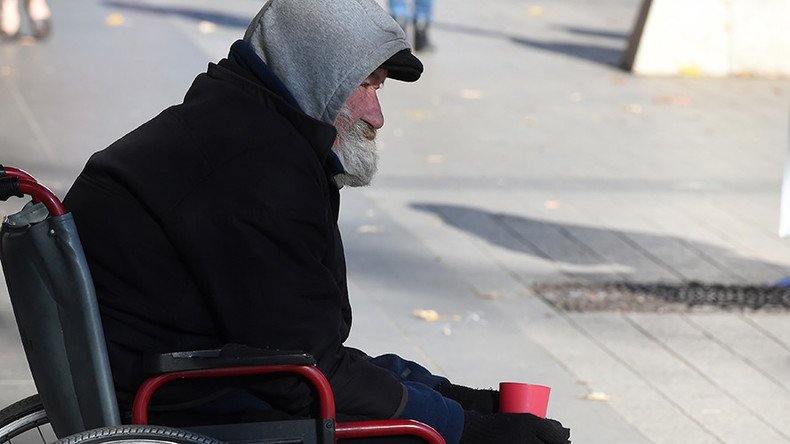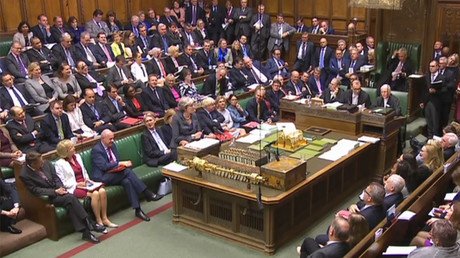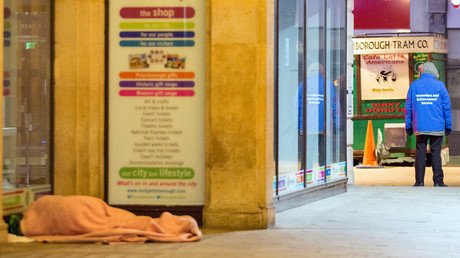Rough sleeping among elderly people doubles in 7 years - official stats

The number of elderly people sleeping rough in the UK has risen by 100 percent in the past seven years, according to new official statistics.
A report by the Local Government Association (LGA) reveals that people over the age of 60 are now twice as likely to become homeless, with the figure rising from 1,210 in 2009 to 2,420 last year.
Meanwhile, overall homelessness figures have risen by 42 percent during the same period, soaring from 41,790 to 59,260, according to government statistics.
Izzi Seccombe, chairman of the LGA’s Community Wellbeing Board, said – while the numbers are still low – there is a risk that the situation will “spiral” in just a few years if current trends continue.
“Traditionally homelessness is associated with young people and it is a tragic fact that a person suffering homelessness lives to an average age of only 47,” she said.
“But we are facing a ticking time bomb in older homelessness, with an alarming rise in the number of older people becoming homeless.
"While the actual numbers are relatively low, at the current rate, this will spiral in just a few years."
The LGA says homeless people are showing up with a range of health problems, both mental and physical, as well alcohol and gambling addictions.
The huge rise in the number of over 60s without accommodation is therefore likely to mount pressure not only on the housing system, but on health and social-care services too.
“Homelessness is not just a housing issue. Homelessness and ill-health are intrinsically linked, and this is especially evident in elderly people,” the LGA chairman warned.
Councils are now urging the Government to tailor the welfare system so that it provides a safety net for the elderly.
Caroline Abrahams, charity director at Age UK, said the rise in elderly homelessness is “outrageous,” while highlighting the urgent need for affordable housing.
“We all know there’s a housing crisis in this country and unfortunately it is hitting older people hard too,” she said.
“There is a lack of specialist resettlement services and long term support and advice and information services are being cut,” Abrahams told the Independent.
“We need a much better choice of good housing options for older people but the supply of affordable council and housing association homes has continued to shrink alongside reductions in home building subsidies.
“It is outrageous to think that any older person should be homeless – these people are the most vulnerable often with physical and mental health issues.”
A Government spokesperson said it acknowledges the importance of everyone having a “secure home to call their own, as well as access to expert help and advice at times of need.”
“That’s why we’re spending £550 million ($731 million) until 2020 to tackle homelessness and rough sleeping, as well as supporting the Homelessness Reduction Act,” the spokesperson said.
”This will mean more people get the help they need and prevent them being homeless in the first place.”














